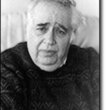Stranger than fiction: lives of the twentieth-century novel
Description
One of the Washington Post’s 50 Best Nonfiction Books of 2024 | A New York Times Book Review Editors’ Choice | A Boston Globe Best Book of 2024“Ambitious, intelligent, and happily unpretentious.” —Louis Menand, The New Yorker“Convincing, idiosyncratic and often felicitous.” —Alexandra Jacobs, The New York Times Book ReviewA legendary editor’s reckoning with the twentieth-century novel and the urgent messages it sends.“How can we live differently?” a young woman urgently demands in Virginia Woolf’s novel The Years. It is the 1930s, war and death are in the air, but her question was asked again and again in the course of a century where things changed fast and changed all the time. The century brought world wars, revolutions, automobiles, movies, and the internet, votes for women, death camps. The century brought questions. Novelists in the twentieth century had a question of their own: how can we write a novel as startling and unforeseen as the world we live in? Again and again they did, transforming the novel as the century remade the world.Imagine the history of the twentieth-century novel recounted with the urgency and intimacy of a novel. That’s what Edwin Frank, the legendary editor who has run the New York Review Books publishing imprint since its inception, does in Stranger Than Fiction. With penetrating insight and originality, Frank introduces us to books, some famous, some little-known, from the whole course of the century and from around the world. Starting with Dostoevsky’s Notes from Underground of 1864, Frank shows how its twitchy, self-undermining, and never-satisfied narrator established a voice that would echo through the coming century. He illuminates the political vision of H. G. Wells’s science fiction, Colette and Andre Gide’s subversions of traditional gender roles, and Gertrude Stein’s untethering of the American sentence. He describes the monumental ambition of books such as Mrs. Dalloway, The Magic Mountain, and The Man Without Qualities to rebuild a world of human possibility upon the ruins of World War I and explores how Japan’s Natsume Soseki and Nigeria’s Chinua Achebe broke open European models to reflect their own, distinct histories and experience. Here too are Vasily Grossman, Anna Banti, and Elsa Morante reckoning in specific ways with the traumas of World War II, while later chapters range from Marguerite Yourcenar and V. S. Naipaul to Gabriel García Márquez and W. G. Sebald.The story as a whole is one of fearless, often reckless exploration, as well as unfathomable desolation. Throughout, we discover the power of the novel to reinvent itself, to find a way for itself, to live differently. Stranger Than Fiction offers a new vision of the history and art of the novel and of a dark and dazzling time in whose light and shadow we still stand.
More Details
Table of Contents
From the Book - First edition.
Similar Titles From NoveList
Similar Authors From NoveList
Published Reviews
Booklist Review
Borges believed that great readers were rarer even than great writers. On the strength of his first work of literary criticism, Frank, founder and editor of the remarkable New York Review Books imprint, is of that rare breed. Frank's ambition was to do for the twentieth-century novel something like what Alex Ross did for twentieth-century music: to write a history that also expresses passionate appreciation. Quibbles with the 32 novels Frank chose to focus on as exemplars are inevitable, and miss the point. Frank isn't arguing for an old or new canon. Instead this is as much about what writers make of the books they read as it is about the books they write, while doing without the trappings of a theory like the anxiety of influence. Fiction demands "not suspension of disbelief," but "an attitude of inquisitive credulity--and an awareness, happy or unhappy, that the truth as it appears to us is always subject to further consideration." Each chapter is a reading of writers living as readers writing their life and times. Frank really might be one of those readers who have read everything, and every chapter thrills to the telling detail, passionate engagement, and careful argument. This is eye-opening, delighted, close reading.
Publisher's Weekly Review
This sophisticated analysis from Frank (Snake Train), a poet and editorial director of New York Review Books, studies how Franz Kafka, Virginia Woolf, Ralph Ellison, and other novelists refracted historical, philosophical, and social change through their writings. Viewing the 20th-century novel as more of an attitude than a strict category, Frank suggests that Fyodor Dostoyevsky's 1864 novella Notes from the Underground laid the groundwork for 20th-century literature by embracing an unvarnished form of psychological realism that sought not to make sense of political and social crises but to reflect them in its fragmented, "helter-skelter" prose. Elsewhere, Frank suggests that Kafka's convoluted run-on sentences in Amerika capture the "relentless pressure of time" that characterizes modernity, and that James Joyce's Ulysses aspired to reinstate a notion of the universal after the factionalism of WWI. Frank doesn't make any pretenses to comprehensiveness, focusing largely on books "written in major European languages" before 1960, but he distinguishes himself as an erudite tour guide who, while never arriving at anything resembling a unified theory of the 20th-century novel, still sheds light on numerous thematic and aesthetic through lines, all presented in sinewy prose ("Notes resembles nothing so much as a swept-up heap of broken glass"). This rewards and delights. (Nov.)
Kirkus Book Review
A history of the 20th-century novel that examines, contextualizes, and draws connections among work by more than 30 authors. Frank, editorial director of New York Review Books, presents his essays in three parts, chronologically ordered. The text, he notes, is a working example of "descriptive criticism, as practiced by such critics as Clement Greenberg, Randall Jarrell, Pauline Kael, Elizabeth Hardwick, and Greil Marcus." Following a preface about Dostoyevsky'sNotes From Underground (1864), which "resembles nothing so much as a swept-up heap of broken glass," the first section encompasses works from the last few decades of the 1900s through the end of World War I, including titles by Wells, Proust, Joyce, and Thomas Mann, whose bookThe Magic Mountain (1924) Frank deems "a new form of the twentieth-century novel, a form born of the war whose new significance could only be fully appreciated after the war." The middle, beginning withMrs. Dalloway, covers a "period of astonishing invention." In the final section, the author examines the novels of the mid- to late 1900s, fromThings Fall Apart toOne Hundred Years of Solitude and beyond. Frank is a dogged enthusiast whose optimism almost always wins out, often for reasons related to positive emotions. Writing about Kafka'sAmerika, for example, he comments, "The book is one ongoing disaster, yet much of it is oddly cheery in tone." Frank's curiosity and scope are both admirable, and his prose style is consistently punchy, despite some repetition--e.g., "Kipling was a restless man"; "Thomas Mann…is a restless man"; D.H. Lawrence was the "most restless of writers." The most controversial thing about this book may be the appeal that it makes for its own existence. While it may strike some as gratuitous, devoted literature fans of canonical literature will relish it. Academic yet accessible, with special appeal to avid readers of classic lit. Copyright (c) Kirkus Reviews, used with permission.
Booklist Reviews
*Starred Review* Borges believed that great readers were rarer even than great writers. On the strength of his first work of literary criticism, Frank, founder and editor of the remarkable New York Review Books imprint, is of that rare breed. Frank's ambition was to do for the twentieth-century novel something like what Alex Ross did for twentieth-century music: to write a history that also expresses passionate appreciation. Quibbles with the 32 novels Frank chose to focus on as exemplars are inevitable, and miss the point. Frank isn't arguing for an old or new canon. Instead this is as much about what writers make of the books they read as it is about the books they write, while doing without the trappings of a theory like the anxiety of influence. Fiction demands "not suspension of disbelief," but "an attitude of inquisitive credulity—and an awareness, happy or unhappy, that the truth as it appears to us is always subject to further consideration." Each chapter is a reading of writers living as readers writing their life and times. Frank really might be one of those readers who have read everything, and every chapter thrills to the telling detail, passionate engagement, and careful argument. This is eye-opening, delighted, close reading. Copyright 2024 Booklist Reviews.
Publishers Weekly Reviews
This sophisticated analysis from Frank (Snake Train), a poet and editorial director of New York Review Books, studies how Franz Kafka, Virginia Woolf, Ralph Ellison, and other novelists refracted historical, philosophical, and social change through their writings. Viewing the 20th-century novel as more of an attitude than a strict category, Frank suggests that Fyodor Dostoyevsky's 1864 novella Notes from the Underground laid the groundwork for 20th-century literature by embracing an unvarnished form of psychological realism that sought not to make sense of political and social crises but to reflect them in its fragmented, "helter-skelter" prose. Elsewhere, Frank suggests that Kafka's convoluted run-on sentences in Amerika capture the "relentless pressure of time" that characterizes modernity, and that James Joyce's Ulysses aspired to reinstate a notion of the universal after the factionalism of WWI. Frank doesn't make any pretenses to comprehensiveness, focusing largely on books "written in major European languages" before 1960, but he distinguishes himself as an erudite tour guide who, while never arriving at anything resembling a unified theory of the 20th-century novel, still sheds light on numerous thematic and aesthetic through lines, all presented in sinewy prose ("Notes resembles nothing so much as a swept-up heap of broken glass"). This rewards and delights. (Nov.)
Copyright 2024 Publishers Weekly.



























